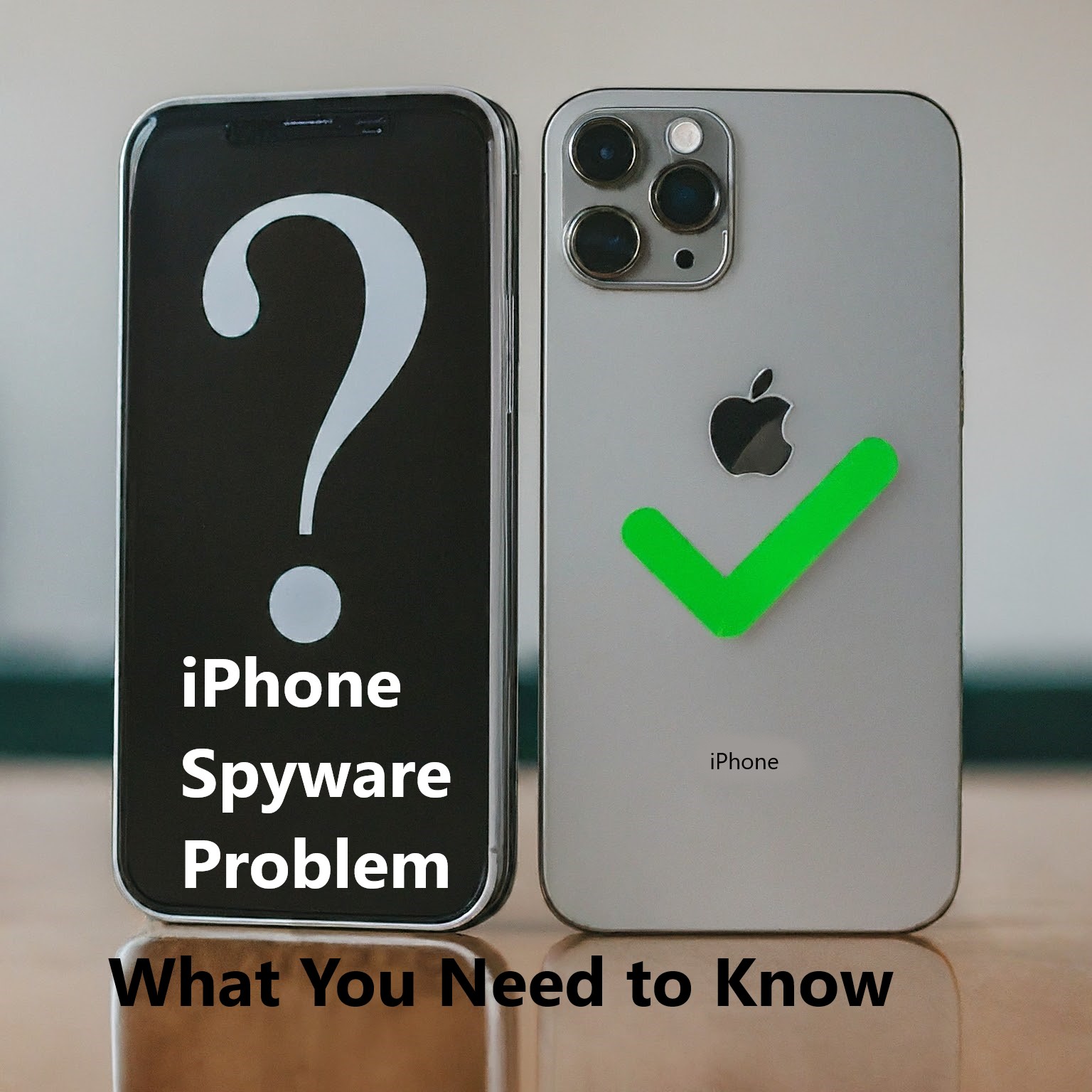In recent years, the secure Apple iPhone has encountered spyware threats. These incidents have raised concerns among users and security experts alike. This article explains the spyware issue, Apple’s actions, and how to protect your device.
Can Spyware Be on an iPhone?
Yes, spyware can indeed infect iPhones. Even though Apple’s security is strong, no system is completely safe from threats. Spyware can get into your device through bad apps, fake links, or weaknesses in the system.
Apple’s Battle Against Spyware
Spyware is bad software that sneaks into devices. It can steal personal info, watch what you do, and listen to your conversations. Even iPhones, known for good security, can’t always stop spyware.
Read More:- Which iPhones Are Waterproof?
Recent Incidents
1. The Zero-Click Spyware Vulnerability
Recently, Apple faced a significant security challenge related to spyware. Hackers found a hole in iPhones and iPads that let them get in without users even needing to click anything. This super sneaky spyware, called “zero-click,” took advantage of the iMessage app. Even if you never clicked on a link or opened a file, hackers could still sneak in.
2. Pegasus Spyware:
A famous example of iPhone spyware is Pegasus, created by a company in Israel called NSO Group. This spyware could find weaknesses in iPhones to take complete control of them. This means it could spy on your texts, calls, and even turn on your camera and microphone without you knowing!
3. FORCEDENTRY Exploit:
Another significant incident was the FORCEDENTRY exploit, which targeted Apple devices using iMessage. This exploit allowed attackers to install spyware without any user interaction. Highlighting the growing sophistication of spyware threats.
Apple’s Response

Apple has taken several steps to address the spyware problem and enhance the security of its devices.
1. Security Patches and Updates
Apple frequently releases security updates to patch vulnerabilities exploited by spyware. For instance, after the Pegasus incident, Apple released updates to close the security loopholes.
2. Legal Actions
Apple has also taken legal actions against spyware developers. In 2021, Apple sued the NSO Group, seeking to hold them accountable for targeting Apple users.
3. Enhanced Security Features
Apple continues to enhance its security features, such as:
- Lockdown Mode: Starting with iPhone software version 15.4, Apple added a new feature called Lockdown Mode. This mode is for people who might be at extra risk of being hacked by spyware. Lockdown Mode makes your iPhone extra secure by turning off some features that hackers could use to get in.
- Improved Privacy Controls: Apple has improved its privacy controls, allowing users to have more control over their data and app permissions.
4. App Sandboxing:
Imagine your iPhone has special locked boxes for each app. These boxes hold everything the app needs to work. The cool thing is, apps can’t peek into other boxes. This makes it much harder for sneaky apps to steal your information, because they’re stuck in their own little box. This security feature is called “sandboxing” by Apple.
5. Threat Detection:
Apple makes tools to find spyware on iPhones and warn people if their phone might be at risk. For example, in April 2024, Apple sent messages to iPhone users in many countries (92!) to let them know their phone could be targeted by spyware.
Read More:- How to Remove Face ID on iPhone
Can Someone Spy on My iPhone Without Me Knowing?
Unfortunately, yes. Sophisticated spyware can operate silently, without any visible signs. It can access your messages, calls, location, and even activate your camera or microphone. Regularly updating your iOS and being cautious about app permissions can help mitigate this risk.
Protecting Your iPhone from Spyware

While Apple works to secure its devices, users can take additional steps to protect their iPhones from spyware.
1. Keep Your Software Updated
Update your iPhone to the latest iOS version. Security updates often include patches for recently discovered vulnerabilities.
2. Be Cautious with Links and Attachments
Avoid downloading attachments or clicking on suspicious links from unknown sources. These can be vectors for spyware installation.
3. Use Strong Passwords and Two-Factor Authentication
Secure your Apple ID with a strong password and enable two-factor authentication to add an extra layer of security.
4. Install Reputable Security Apps
Consider installing reputable security apps that can scan for and remove spyware from your device.
5. Monitor App Permissions
Regularly review app permissions and revoke access to unnecessary features. This can help prevent apps from accessing sensitive data without your knowledge.
How to Tell If Someone Is Accessing iPhone Remotely
Here are signs that someone may be accessing your iPhone remotely:
- Unusual Activity: Look for unusual activity such as apps opening or closing on their own, or unexpected notifications.
- Battery Drain: Spyware can cause your battery to drain faster than usual due to constant background activity.
- Data Usage: Spyware can be sneaky and send information from your iPhone without you knowing. This might show up as you using more data than usual, even though you haven’t changed how you use your phone. If you see a big jump in data usage that you can’t explain, it’s a good idea to be careful.
- Device Performance: If your iPhone suddenly becomes slow or unresponsive, it could be a sign of spyware.
- Check Permissions: Review app permissions in Settings to ensure no app has unnecessary access.
Read More:- What is the Orange Dot on my iPhone
How to Check Your iPhone for Spyware for Free
You can check your iPhone for spyware using the following methods:
- Update Your iOS: Updating to the latest iOS version can remove known spyware.
- Review Installed Apps: Go through your installed apps and delete any that you do not recognize or trust.
- Check Data Usage: Review your data usage in settings to spot any unusual activity.
- Use Free Security Apps: Apps like Avast Mobile Security or Malwarebytes offer free scans to detect and remove spyware.
Implications for Privacy and Security
Spying programs, like spyware, are like sneaky thieves trying to break into your iPhone. Apple creates security guards to keep them out. This is a constant battle. Apple knows you trust them to keep your iPhone safe, so they keep improving their security guards to stay ahead of these thieves.
Privacy Concerns
Spyware not only invades personal privacy but also poses risks to sensitive information. Such as financial data and personal communications. Users must remain vigilant and proactive in protecting their devices.
Future Security Enhancements
Spyware tricks are getting smarter all the time. This means Apple and other tech companies need to keep coming up with new ways to protect us. They can do this by building even better tools to spot these threats and by working together with security experts.
By staying informed and adopting best practices for device security, iPhone users can mitigate the risks posed by spyware.
Conclusion
New iPhone tricks to spy on people are always being invented. Even though Apple makes iPhones very secure, you still need to be careful. If you know what the risks are, how to protect yourself, and keep your iPhone updated, it’s much harder for someone to spy on you. No matter how secure something is, there can still be weaknesses. So it’s important to be on the lookout for problems.
Read More:- How to Change Notification Sound on iPhone ios 17

